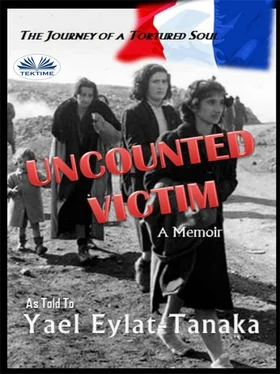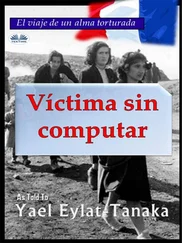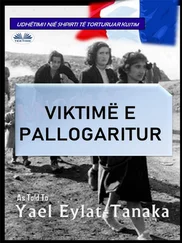Although I didn’t know my grandfather, he was a very religious Jew, and as such observed the tradition of never shaving his beard. If a single hair fell from it, he would conserve it in his prayer book. He took a new wife, my grandmother Memé, after she divorced her first abusive husband and had abandoned her first born son. He, himself, had grown children who were older than she, who persecuted her, but he, himself, treated her with love and respect.
These flimsy memories are all I have of my origins. Tiny threads of my childhood, perhaps peppered with some photographs and anecdotes from other members of my family.
My mother was also Turkish. From her stories of her youth in Izmir, she and her family lived in the Greek and Armenian Quarter of Izmir. My grandfather owned a china and glass shop and sent his children to a missionary school headed by Scottish Protestant missionaries. I remember how my mother glowed when she sang the hymns she had learned at school and spoke of Mr. Murray, the principal, who used to call for her to come and stand in the front row so that he could better hear her singing. Of course, those were religious hymns, and the name of Jesus was frequently heard in the house, which displeased my father deeply.
Living among the Greeks and Armenians, my mother learned to speak those languages and sing their songs, which thrilled me as a little girl. I still remember some of them, even though I never learned their meaning. Those songs sounded very romantic to me, and I would often ask my mother to teach me Greek. Since she attended a Scottish missionary school, all her schooling was held in English and she remained fluent in this language her entire life.
Naturally, she also spoke fluent Turkish. When the grownups at home did not want the children to understand something, they would switch to Turkish when speaking among themselves, until the children began to understand the gist of their conversations.
As a young woman, my mother’s best friend in Izmir was Allegra Romano. The two did everything together. I found some photographs of the two with some inscriptions on the back from my mother to Allegra written in French. My mother and her family emigrated to France after World War I, as did her friend, Allegra, and the two remained friends, eventually marrying two brothers, my father and my uncle, Raphael. However, because my father was so much in love with my mother and my uncle, Raphael was rather a rake, my aunt Allegra became deeply jealous and resentful of my mother, and their friendship floundered. I believe that my mother still loved her and missed her deeply in spite of the deterioration of their relationship.
When my mother and her family were still living in Izmir during the Great War, they witnessed the terrible massacres of the Greek and Armenian communities by the Turks, which event has since been called genocide. This frightened them so much that my mother suffered for a long time with stomach ulcers and nightmares. The savagery of the Turks toward the Greeks and Armenians living in Turkey caused a tremendous exodus of the Jewish population who had lived there since their expulsion from Spain in 1492 by Isabel of Castille and Ferdinand of Aragon at the behest of the Inquisition. The Jewish community in Turkey realized that the previous five centuries of more or less tranquil life in Turkey had come to an end, and all those who had the means emigrated. Many fled to the Americas. My extended family emigrated to France, and settled in Lyon.
My mother and her family arrived in France about 1920, and went to live with her married brother, Vidal, in Lyon. My uncle was quite friendly with two young men, Henri and Raphael, who had also emigrated to France from Turkey around the same time as he had. My uncle liked one of the brothers, Henri, and decided to introduce him to his sister, and so invited him to his home. My mother told me later that she was doing some needlework in the living room, and my father started teasing her and playing with her threads. That was their introduction. They courted and married shortly afterward.
Since they had been newcomers to France, the newlyweds were of meager means, so they began their married life in the same apartment that the two brothers shared with their mother. My mother’s best friend, Allegra, was eventually introduced to Henri’s brother, Raphael, when she visited my mother after her marriage, and eventually they married too. They also lived in the same apartment with their mother, my grandmother, Memé, who had a veritable court over which to rule. Imagine: Two sons who both married and both chose to share a single apartment. From what I understand, life was not always very easy for the two young couples, particularly because my grandmother favored Raphael who was much less serious than his brother. I remember him always joking and laughing. He also played around a lot. From the stories I heard as a child, he frequently did not come home in the evenings, to the great chagrin of his bride. My father, by contrast, was very much in love with my mother, and was home every evening, being always very affectionate with her. She became pregnant with my oldest brother almost immediately.
The two young couples lived with their mother in the same apartment. Slowly, however, my mother’s friendship with Allegra began to deteriorate and frictions developed. Compounding the tensions, my grandmother favored Raphael and his jovial and irresponsible manner, and harbored a corresponding antipathy toward my mother. That my mother was pregnant and Allegra was not only added to Allegra’s resentment.
Fortunately, my mother’s first born was a boy, my brother, René, whose Jewish name was Salomon, and everyone started calling him Momon, and later, simply Momo. Shortly afterward, my mother became pregnant again, this time with me. By then, Allegra had become pregnant. The two young brides had to contend with their mother-in-law who decreed that my mother should not have a second baby so soon after the first. From the family stories I heard, I understand that Memé was quite unpleasant to my mother during her second pregnancy with me, while being very attentive toward Allegra who was carrying her favorite son’s child. It may be that my grandmother’s dislike of me began even before I was born, and diminished only when she became senile. I was later told by my grandfather that Memé did not visit my mother in the hospital when I was born, and when I was brought home, she never even approached my crib to look at her new granddaughter.
When I was five or six, my mother told us that I was born at Hotel-Dieu Hospital in Lyon. As all small children, my two brothers and I were quite curious and excited to learn about our own beginnings. This was the kind of rare adult conversation destined to keep us quiet and mesmerized at least for a few minutes. Our mother went on telling her young audience that this hospital was run by the Sisters of Charity of St. Vincent de Paul, and that one of the sisters shook her in her bed, urging her to “Wake up, my chubby one, you have a beautiful baby girl.” I felt extremely proud to have been characterized as a beautiful baby girl, not realizing at that time that no nurse would call a newborn beautiful. While basking in that gratifying emotion, I vaguely wondered whether babies were born during the night when their mothers slept, and why would my mother sleep in a hospital? These questions were never answered to my satisfaction.
On and off while still very young, I garnered some snippets of information about my early childhood. Maman always used to say that I had been a very easy baby who could quietly play with a toy for hours. She mentioned that because of my quietness, she once forgot a medicated plaster she had applied to my back when I was ill, and when she finally remembered and ran to my crib, my back was all swollen and red hot; yet I had not cried to alert her. Of course, I did not remember the incident. By contrast, the rest of my childhood was anything but quiet.
Читать дальше












